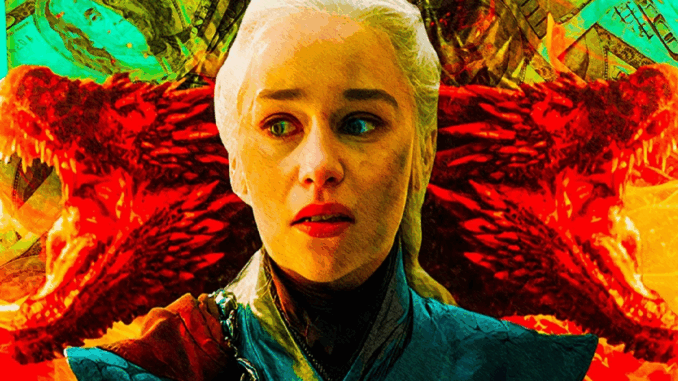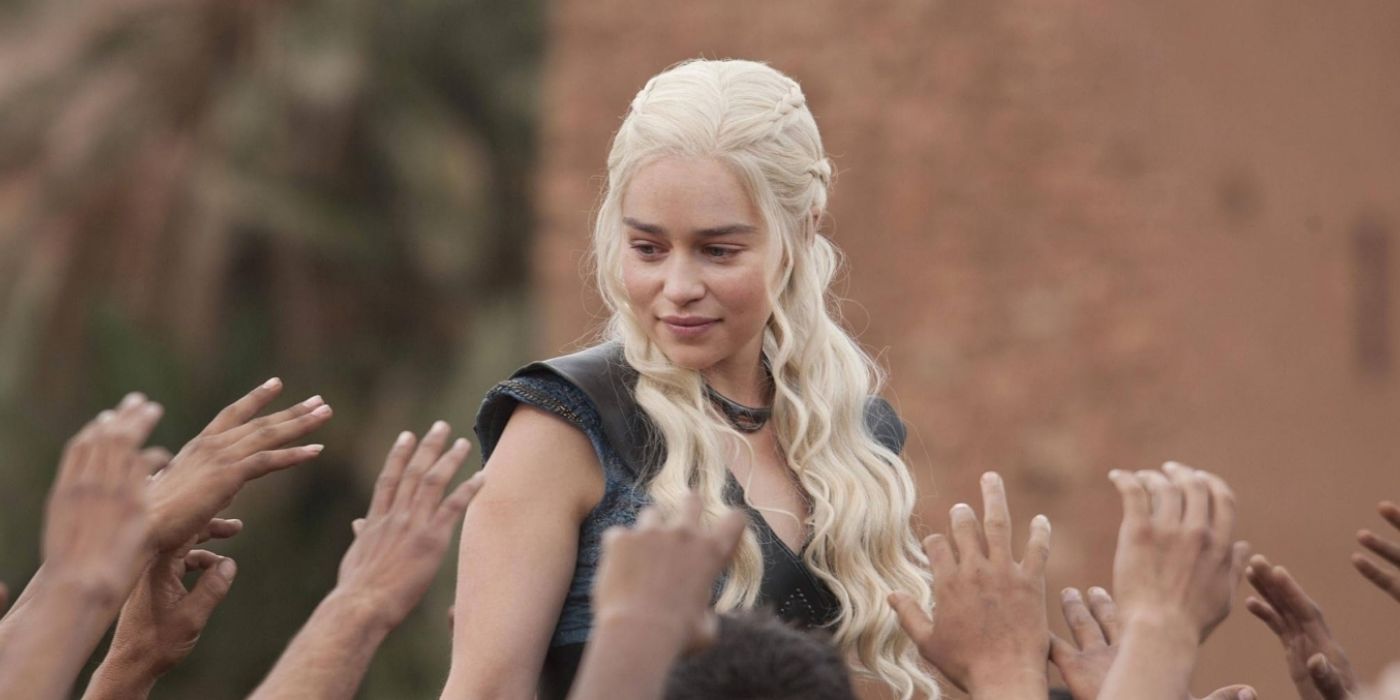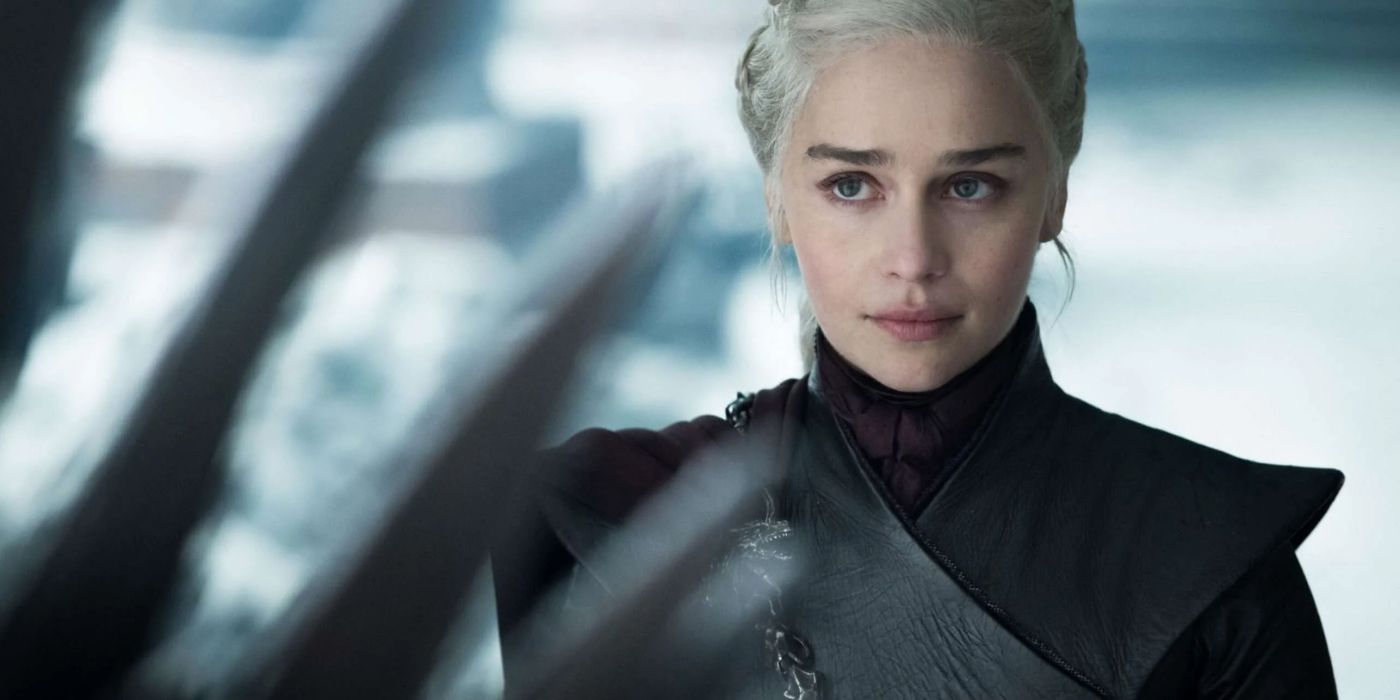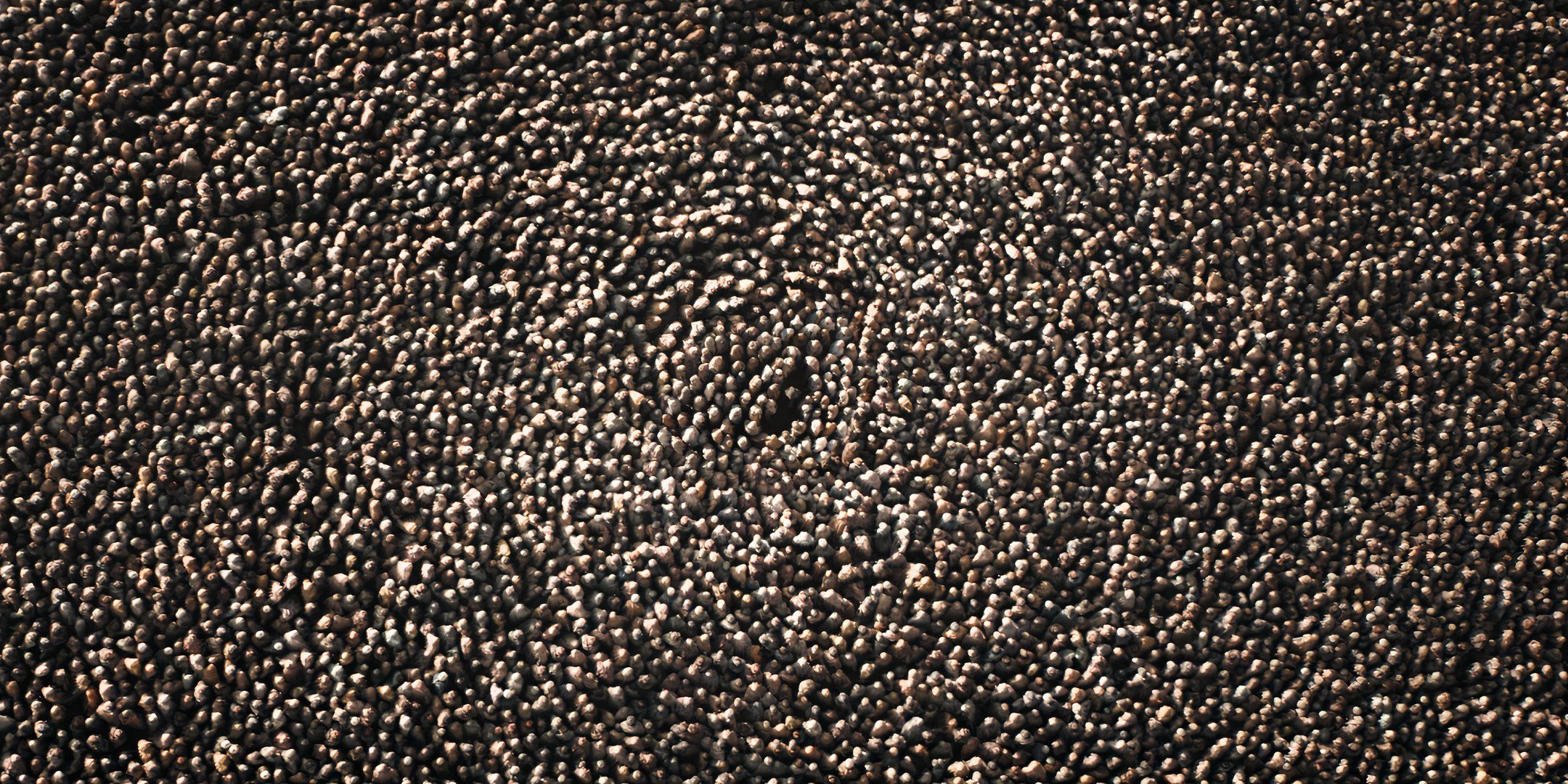
I don’t think those criticisms are wrong, though they’re not entirely fair. Prior to Daenerys burning King’s Landing, the show had displayed her tendencies for violence and a desire to take what was hers with fire and blood somewhat, but it definitely needed to lean into that a lot harder than it did. However, I don’t think that’s just a fault of Game of Thrones season 8, but something that dates all the way back to season 3 instead.
Game Of Thrones Season 3’s Finale Caused Problems For Daenerys’ Arc
Dany’s “Mhysa” Moment Was Uncomfortable, And Created A Problem

Game of Thrones season 3, episode 10, “Mhysa,” ended with what was ostensibly a moment of triumph for Daenerys. The freed slaves of Yunkai get to meet the “Breaker of Chains,” and Dany is lifted into the crowd who chant “mhysa,” which translates as “mother.”
As Daenerys, the whiter-than-white hero, is hoisted into the air by the poor, grateful people of color she has freed, it definitely carries an air of the white savior trope about it.
Being generous to Game of Thrones, it’s possible to argue that this was a deliberate choice; that any feelings of discomfort viewers had were a feature, not a bug, and that it was setting up Daenerys’ doomed arc by showing her mission, while starting from a just moral standpoint in liberating slaves, was deeply flawed. The show had its moments, such as her killing of the slavers in Meereen, but it always worked hard to justify them.
Dany did terrible things, but was rarely presented as anything less than the hero, her viewpoint unchallenged by anyone whose views audiences would’ve really considered until much later. This isn’t just about the scene in “Mhysa” in isolation, but how that really became the blueprint for Daenerys’ heroism and how it could have instead been the springboard for her gradual darker turn.
Dune 2 Shows How Game Of Thrones Could’ve Handled Daenerys’ Story Better
Paul Atreides’ Villain Turn Is What Daenerys’ Could Have Been
Paul Atreides is the dark Chosen One Anakin Skywalker never was, but he’s also an example of how Game of Thrones could have leaned much, much more into Daenerys’ own darker traits and actions…
When Paul makes his way through a huge crowd of Fremen, on his way to eventually killing Baron Harkonnen, I couldn’t help but be reminded of two things: Daenerys in Yunkai, and Anakin Skywalker with the 501st Legion in the Jedi Temple. Paul Atreides is the dark Chosen One Anakin Skywalker never was, but he’s also an example of how Game of Thrones could have leaned much, much more into Daenerys’ own darker traits and actions, rather than maintaining her as its hero until, well, she wasn’t.
| Daenerys Targaryen & Paul Atreides – Quick Facts | ||
|---|---|---|
| Facts | Daenerys | Paul |
| First Appearance (Book) | A Game of Thrones (1996) | Dune (1965) |
| First Appearance (Movie/Show) | Game of Thrones (2011) | Dune (1984) |
| Played By | Emilia Clarke | Kyle MacLachlan
Timothée Chalamet |
| Great House | Targaryen | Atreides |
| Titles | Mother of Dragons, Khaleesi of the Great Grass Sea, The Unburnt, Breaker of Chains, Queen of the Andals and the First Men, Protector of the Seven Kingdoms | Duke, Kwisatz Haderach,
Mahdi, Lisan al Gaib, Padishah Emperor |
Paul fully buys into his own destiny. There’s a tragedy with that, because he believes it’s the only cause of action, and he had previously tried to resist it, but he’s also consumed with a new power… and it’s one that will lead to the deaths of billions, but the violence and bloodshed is a price he’ll willing to pay. Daenerys, too, led people into a war that killed a lot of people (albeit not as many as Paul’s Unholy War will), but because Dune 2 is so focused on showing the dangers of messiah figures and hammers home that message, it works brilliantly.
In fairness, Game of Thrones isn’t as focused on one main character as Dune is. That is Paul’s story, whereas Game of Thrones‘ cast was even more expansive, and while Daenerys was one of the two main heroes, she shared that title with Jon Snow. Nonetheless, it could have done better.
When Daenerys committed her own harsh acts, although it could be used to show us the route she’s taking, we’re told that she was morally superior. Even when she worries about being like her father, we’re told she won’t be. Anytime Daenerys does anything that could be taken as being “wrong,” Game of Thrones said no, she’s right… until the very last “wrong” thing she did. There’s a lot more power, nuance, and understanding in Paul’s own villain turn, which shows how Thrones could’ve improved things.
Daenerys’ Villain Arc Still Works, But It Could’ve Been A Lot Stronger
Game Of Thrones Needed To Do More

Broadly speaking, I actually like Daenerys’ arc in Game of Thrones season 8. Taken on its own terms, I think “The Bells” is a very powerful episode of television, showcasing the horrors of war, the terrible fury of dragons, and the dark side of destiny, desire, and power when those things go unchecked. Even looking at it within the context of the entire show, I think Daenerys’ turn is a fascinating one for her character, and a mostly logical endpoint for her.
Even with that, though, it’s very clear Game of Thrones could have done more – the reception shows as such. It’s not just that people would never have accepted it – though some wouldn’t – but that the setup could have been a lot more overt. Again, things like killing the slavers, burning the Khals, sending Randyll and Dickon Tarly to death, and speeches of burning cities to the ground are good for this direction, but there wasn’t enough done to challenge Dany’s moral viewpoint or that these weren’t justified, isolated incidents, the actions of a just ruler who had to make tough decisions.
It could have gone harder on [Daenerys] believing in her own destiny (perhaps bringing in more of the Prince That Was Promised prophecy), to make her downfall more tragic.
That’s something we get with Dune: Part Two, and while they are different stories headed in different directions, it’s better than Game of Thrones managed with Dany.

